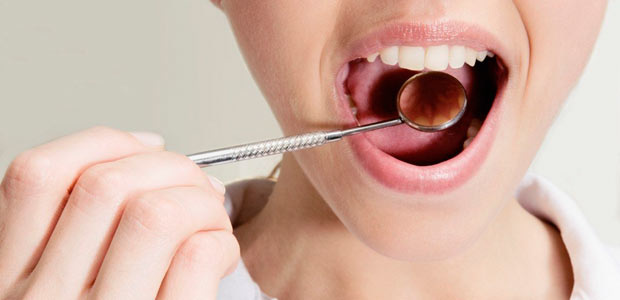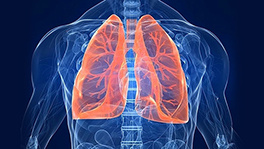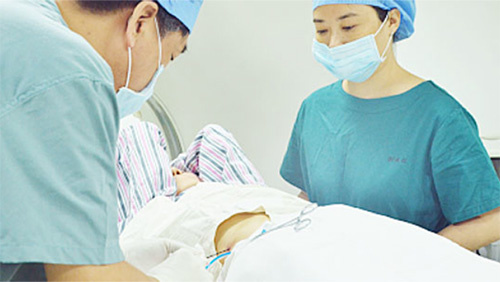What is oral cancer?
Oral cancer is malignant tumor that starts in the mouth. It may occur in the lips, gum, tongue, palate, jaw bone, floor of the mouth, oral pharynx, salivary glands, maxillary sinus and mucous membrane of the facial skin.

What is the incidence of oral cancer?
The incidence of oral cancer accounts for 1.45% to 5.6% of all the malignant cancers with a higher percentage among males than females.
If you are diagnosed with cancer, please consult online doctors for more information.
What are the causes of oral cancer?
Long-term addition to smoking or drinking: most oral cancer patients have long history of smoking or drinking. Non-smokers and Non-drinkers are seldom found with oral cancer.
Bad oral hygiene: bad oral hygiene provides a nourishing environment for the growth and multiplication of bacteria and mycetes, which are beneficial to the formation of nitrosamine.
Long-term stimulation of foreign body: long-term stimulation to the mucous membrane of the oral cavity by root of teeth, sharp teeth cusps or unsuitable false teeth, can cause chronic ulcer and cancerous lesion.
Innutrition: lack of elements like vitamin A1, vitamin B2 and trace element zinc, arsenic, can raise the organism’s sensitivity to carcinogen and causes oral cancer.
Leukoplakia and erythroplakia: oral leukoplakia and proliferative erythroplakia are signs of cancerous lesion.
Ultraviolet rays: for outdoor workers, long-term exposure to direct sunlight can raise the risk of oral cancer.
Ionizing radiation: ionizing radiation can cause changes of DNA and activate the cancer genes, thus, causes cancer.
Others: diseases like chronic hepatitis, cirrhosis and virus infection, which can cause decrease of the organism’s immunity, also have relation to the incidence of oral cancer.
If you are diagnosed with cancer, please consult online doctors for more information.
What are the symptoms of oral cancer?
Change of color: the abnormality of oral cavity that its color changes into white, brown and black suggests the change of epithelial cell of mucous membrane. Especially when the mucous membrane becomes rough, thick or has nodules, and cavity leukoplakia or erythroplakia occurs, it may suggest cancerous lesion has happened.
Unhealed ulcer: course of mouth ulcer usually is less than two weeks. Therefore, if you have symptoms like burning feeling and pain for more than two weeks without getting better, you should look out for them, as they may be signs of oral cancer.
Obvious pain: usually, oral cancer has no pain but only local abnormal friction feeling in the early stage, while obvious pain occurs after the ulcer cracks. As the cancer further invades the nerves, the patient may feel pain in the ears and throat.
Swollen lymph nodes: most oral cancers can invade the nearby lymph nodes of the neck, causing swelling of lymph nodes.
Dysfunction: oral cancer can invade the masticatory muscles and mandibular joint, causing limitation to the activity of the mouth.
Self-examination of oral cancer
Face and neck examination: when examining the neck, try to raise your head backwards as much as you can and check whether there are abnormalities in the inferior maxilla area and neck. Touch both sides of your neck and the inferior maxilla area with your hands to feel the difference between the inferior maxilla area and the two sides of the neck.
Lip examination: observe the outer side of both lips, touch them with your hands, lightly pull down the lower lip with your fingers and check its inner side, and then check the inner side of your upper lip.
Gum examination: observe your gums and touch them with your fingers to see whether there are abnormalities.
Cheek examination: keep you mouth closed, lightly pull both corners of your mouth oppositely towards the direction of your ears, touch both your cheeks and see whether there is abnormality.
Check your tongue: stretch out your tongue, hold it with your hand, touch and observe the surface, pull it to the left and then right side to check whether there are abnormalities on lateral borders.
Check the roof of the tongue: raise your tongue, touch and observe it to check whether there are abnormities.
Check the pharynx and palate: open your mouth and say “ah”, observe the pharynx under light, raise your head backwards, and touch the palate to see whether there is abnormality.
If you are diagnosed with cancer, please consult online doctors for more information.
Traditional treatment methods for oral cancer
Surgery: surgery is a common treatment method for oral cancer. Early oral cancer, if no lymph node swelling of the neck occurs, can be removed by individual surgery.
Chemotherapy: individual chemotherapy is seldom used in treating head and neck cancers. In stead, it is usually accompanied with radiation therapy to improve the tumor’s sensitivity to radiation.
Radiation therapy: whether it is used individually or combined with surgery, it plays an important role in oral cancer treatment, after which the functions of chewing, swallowing and pronunciation can be retained and patient’s life quality is improved.
Chinese characteristic treatment
Chinese medicine can not only nurse and balance the patient’s health, strengthen the patient’s physical constitution and resist cancer, but also eliminate the toxic side-effect from chemotherapy and radiotherapy and improve the patient’s immunity. Combination of Chinese medicine and Western medicine can get a better effect than any other individual therapies do. It is a kind of advanced comprehensive treatment mode of cancer.
If you are diagnosed with cancer, please consult online doctors for more information.
What is the postoperative care of oral cancer?
Provide liquid diet to the patient after surgery and change into semi-liquid diet about one week after the operation.
Observe the color, temperature and elasticity of the patient’s skin flap, if it is low in temperature, greenish purple and increasingly aggravates, turn to the doctor instantly.
Aspirate the patient’s secretions in the mouth, nasal cavity and pharynx to keep the airway unobstructed.
If the patient is not able to talk, check whether there are symptoms of airway obstruction, such as fidget and nasal flaring, if any, inform the doctor
If you are diagnosed with cancer, please consult online doctors for more information.


 (MY)+60 10-898 8919
(MY)+60 10-898 8919























